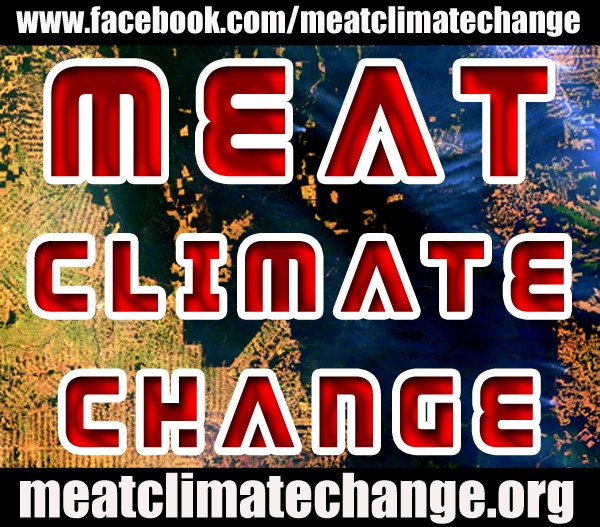Petition: "Put Meat on the Agenda of Climate Talks"
Ending date: December 31, 2019 01:00:00
How to Handle Results? Forward to Petition Submitter for Delivery
Recipients:
IPCC and UNCCC
Subject of Letter to Recipient: Put Livestock Production on the Agenda of Climate Talks
Letter to Recipient:
Livestock production is the 2nd leading cause of manmade greenhouse gas emissions. Even if the world went fossil-free by 2100, increasing animal consumption will still cause catastrophic global warming. A plant-based diet and reforestation can help to reverse climate change.In reducing fossil-based emissions, an argument can be made that fossil fuels are not essential for human survival, and that many non-carbon sources of energy already exist, and should be used instead. However, this argument is often inverted when dealing with livestock's GHG emissions. Animal-based diets are viewed as non-negotiable and indispensable to human survival. And, the common perception is that other protein sources are not as good or available.The lobbies for eggs, cow's milk and animal carcass production, are well-organized, and many politicians minimize and ignore the climate and diet issue due to conflicts of interest.However, the single biggest cause of environmental degradation is the changing over to animal-based diets. It took more than a century for Europeans to change over to a diet based on consuming animal products at every meal. But, in large parts of Asia, a similar shift has occurred in just one generation. Globally, the demand for animal products is projected to increase by 50 percent from 2013 to 2025, and this will significantly expand animal-based emissions. At any given time, the global livestock population amounts to more than 150 billion, compared with just 7.2 billion humans, so livestock have a larger direct ecological footprint than humans. Animal agriculture specifically drives climate change, and is linked to the food crisis, water emergencies, dispossession and social conflicts. Animal agribusiness has large footprints on the air, land, water, energy, material, health, and other areas. These various GHG footprints are part of livestock animals' life-cycle, supply chains and byproducts.Also, livestock production's footprints include carbon dioxide (CO2), methane (CH4), nitrous oxide (N2O) and other GHGs, that have a larger cumulative effect on climate change than from each gas added up individually. Unless livestock's emissions are reduced along with fossil fuels, they may set in motion various environmental feedbacks that result in the surpassing of climate change tipping points.We need to put Meat on the agenda of climate talks! Please sign the petition and help us get this issue on the climate negotiating table.For more information, see Meat Climate Change
| Rate It | View Ratings |
Dr. Moses Seenarine is a plant-based father and activist, founder of Climate Change 911, and the author of Voices from the Subaltern(2004) and Meat Climate Change (Available on Amazon)
Dr. Moses Seenarine completed an Ed.D in (more...)
OpEdNews depends upon can't survive without your help.
If you value this article and the work of OpEdNews, please either Donate or Purchase a premium membership.
If you've enjoyed this, sign up for our daily or weekly newsletter to get lots of great progressive content.
To View Comments or Join the Conversation:




